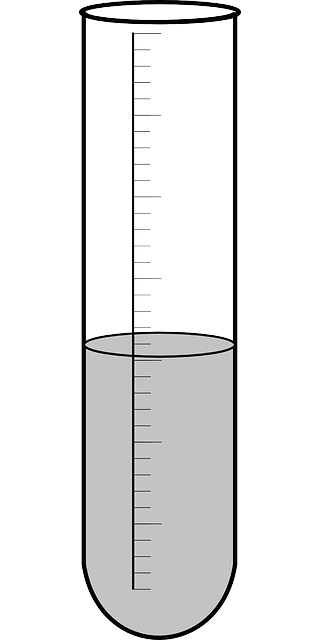Iron deficiency anemia, a common blood disorder caused by low iron levels, can be detected using a Cholesterol Blood Test UK. This test identifies low hemoglobin and ferritin, key indicators of anemia, alongside assessing cardiovascular health through cholesterol levels (LDL, HDL, triglycerides). Optimal cholesterol ranges for adults in the UK are LDL below 140 mg/dL, HDL above 60 mg/dL, and total cholesterol below 200 mg/dL. Regular Cholesterol Blood Tests are recommended for risk assessment and early intervention to prevent cardiovascular diseases.
Iron deficiency anemia is a common yet serious health condition, often caused by inadequate iron intake or blood loss. Understanding its symptoms and impact is crucial for early detection. This article delves into the diagnostic process, highlighting the role of blood tests, particularly focusing on the Cholesterol Blood Test UK. Learn how this test procedures and interpretations aid in identifying iron deficiency anemia, enabling timely treatment and management.
- Understanding Iron Deficiency Anemia and Its Impact
- The Role of Blood Tests in Diagnosis
- Cholesterol Blood Test UK: Procedures and Interpretations
Understanding Iron Deficiency Anemia and Its Impact
Iron deficiency anemia is a common blood disorder that occurs when your body doesn’t have enough healthy red blood cells to carry adequate oxygen to your tissues and organs. This condition can result from various factors, such as blood loss, inadequate iron intake, or impaired absorption of iron in the digestive tract. It’s essential to identify and address this issue promptly because anemia can significantly impact overall health and daily functioning.
Symptoms often include fatigue, weakness, pale skin, shortness of breath, dizziness, and headaches. In some cases, individuals may experience a faster heart rate or chest pain. A simple Cholesterol Blood Test UK can play a vital role in diagnosing iron deficiency anemia as low iron levels will be indicated in the results. This initial assessment helps healthcare professionals determine if further tests are required to rule out other potential causes and guide appropriate treatment options, such as dietary changes, supplementation, or medical interventions.
The Role of Blood Tests in Diagnosis
Blood tests play a crucial role in diagnosing iron deficiency anemia, offering valuable insights into the presence and severity of this common blood disorder. One of the primary indicators is a low level of hemoglobin, a protein in red blood cells responsible for carrying oxygen throughout the body. By analyzing a sample of your blood, healthcare professionals can measure hemoglobin concentration, with values below the reference range suggesting anemia.
Additionally, these tests may include assessments of ferritin, a protein that stores iron in the body. Low ferritin levels often indicate iron deficiency, as it reflects the available iron reserves. In the UK, cholesterol blood tests are also commonly performed, but their primary purpose is not directly related to diagnosing anemia. Instead, they help assess overall cardiovascular health, which is important in managing certain types of anemia, ensuring a comprehensive approach to patient care.
Cholesterol Blood Test UK: Procedures and Interpretations
In the UK, a Cholesterol Blood Test is a common procedure used to assess an individual’s cholesterol levels. This test involves taking a small sample of blood, usually from a vein in the arm, and analysing it for total cholesterol, LDL (low-density lipoprotein) or ‘bad’ cholesterol, HDL (high-density lipoprotein) or ‘good’ cholesterol, and triglycerides. The process is straightforward: after a period of fasting, typically 9–12 hours, a healthcare professional will insert a needle to draw blood, which is then sent to a laboratory for analysis.
The interpretation of results depends on age and overall health. For adults, optimal HDL levels are generally above 60 mg/dL, while LDL levels should be below 140 mg/dL. A total cholesterol level below 200 mg/dL is considered desirable. Results outside these ranges may indicate an increased risk of heart disease or other cardiovascular issues. In the UK, healthcare providers often use these tests as part of routine check-ups or when assessing individuals with symptoms or risk factors for heart and blood vessel diseases.
Iron deficiency anemia is a common yet serious health condition, and accurate diagnosis through blood tests, such as the Cholesterol Blood Test UK, is essential for effective management. By understanding the impact of iron deficiency and leveraging modern diagnostic tools, individuals can promptly address underlying issues, leading to improved overall well-being. This comprehensive approach ensures that simple blood tests play a pivotal role in navigating and overcoming potential health challenges.
